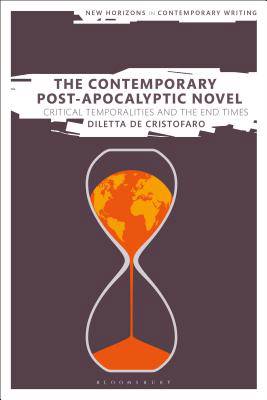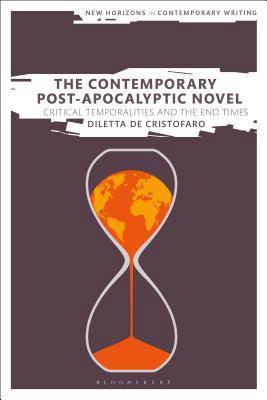
Bedankt voor het vertrouwen het afgelopen jaar! Om jou te bedanken bieden we GRATIS verzending (in België) aan op alles gedurende de hele maand januari.
- Afhalen na 1 uur in een winkel met voorraad
- In januari gratis thuislevering in België
- Ruim aanbod met 7 miljoen producten
Bedankt voor het vertrouwen het afgelopen jaar! Om jou te bedanken bieden we GRATIS verzending (in België) aan op alles gedurende de hele maand januari.
- Afhalen na 1 uur in een winkel met voorraad
- In januari gratis thuislevering in België
- Ruim aanbod met 7 miljoen producten
Zoeken
The Contemporary Post-Apocalyptic Novel Critical Temporalities and the End Times
Critical Temporalities and the End Times
Diletta de Cristofaro
€ 254,45
+ 508 punten
Omschrijving
Traditional apocalyptic texts concern the advent of a better world at the end of history that will make sense of everything that happened before. But what is at stake in the contemporary shift to apocalyptic narratives in which the utopian end of time is removed?
The Contemporary Post-Apocalyptic Novel offers an innovative critical model for our cultural obsession with 'the end' by focussing on the significance of time in the 21st-century post-apocalyptic novel and challenging traditional apocalyptic logic. Once confined to the genre of science fiction, the increasing popularity of end-of-the-world narratives has caused apocalyptic writing to feature in the work of some of contemporary literature's most well-known fiction writers. Considering novels by Will Self, Cormac McCarthy, David Mitchell, Emily St. John Mandel, Jeanette Winterson and others, Diletta De Cristofaro frames the contemporary apocalyptic imagination as a critique of modernity's apocalyptic conception of time and history. Interdisciplinary in scope, the book historicises apocalyptic beliefs by exploring how relentlessly they have shaped the modern world.
The Contemporary Post-Apocalyptic Novel offers an innovative critical model for our cultural obsession with 'the end' by focussing on the significance of time in the 21st-century post-apocalyptic novel and challenging traditional apocalyptic logic. Once confined to the genre of science fiction, the increasing popularity of end-of-the-world narratives has caused apocalyptic writing to feature in the work of some of contemporary literature's most well-known fiction writers. Considering novels by Will Self, Cormac McCarthy, David Mitchell, Emily St. John Mandel, Jeanette Winterson and others, Diletta De Cristofaro frames the contemporary apocalyptic imagination as a critique of modernity's apocalyptic conception of time and history. Interdisciplinary in scope, the book historicises apocalyptic beliefs by exploring how relentlessly they have shaped the modern world.
Specificaties
Betrokkenen
- Auteur(s):
- Uitgeverij:
Inhoud
- Aantal bladzijden:
- 208
- Taal:
- Engels
- Reeks:
Eigenschappen
- Productcode (EAN):
- 9781350085770
- Verschijningsdatum:
- 26/12/2019
- Uitvoering:
- Hardcover
- Formaat:
- Genaaid
- Afmetingen:
- 156 mm x 234 mm
- Gewicht:
- 467 g

Alleen bij Standaard Boekhandel
+ 508 punten op je klantenkaart van Standaard Boekhandel
Beoordelingen
We publiceren alleen reviews die voldoen aan de voorwaarden voor reviews. Bekijk onze voorwaarden voor reviews.









